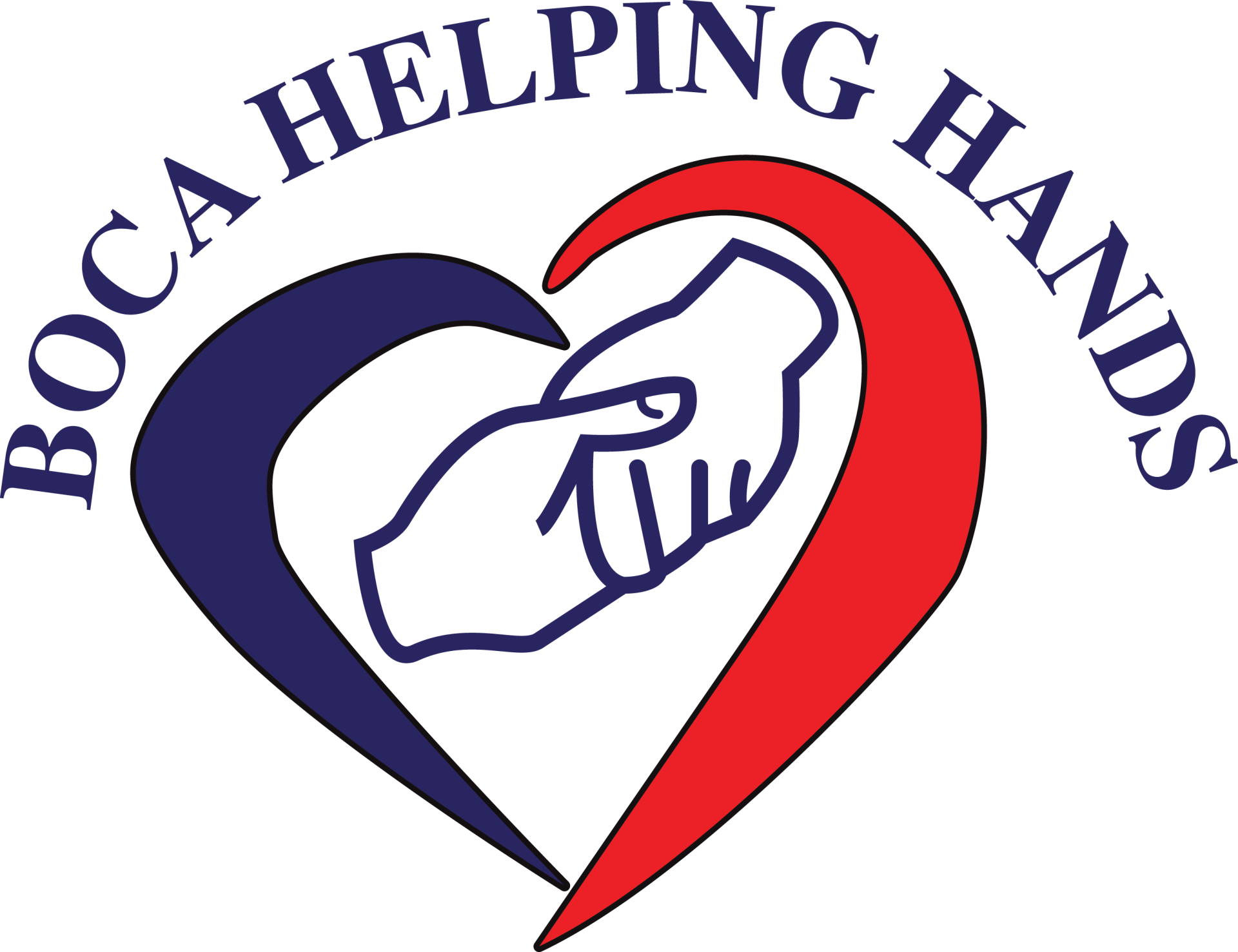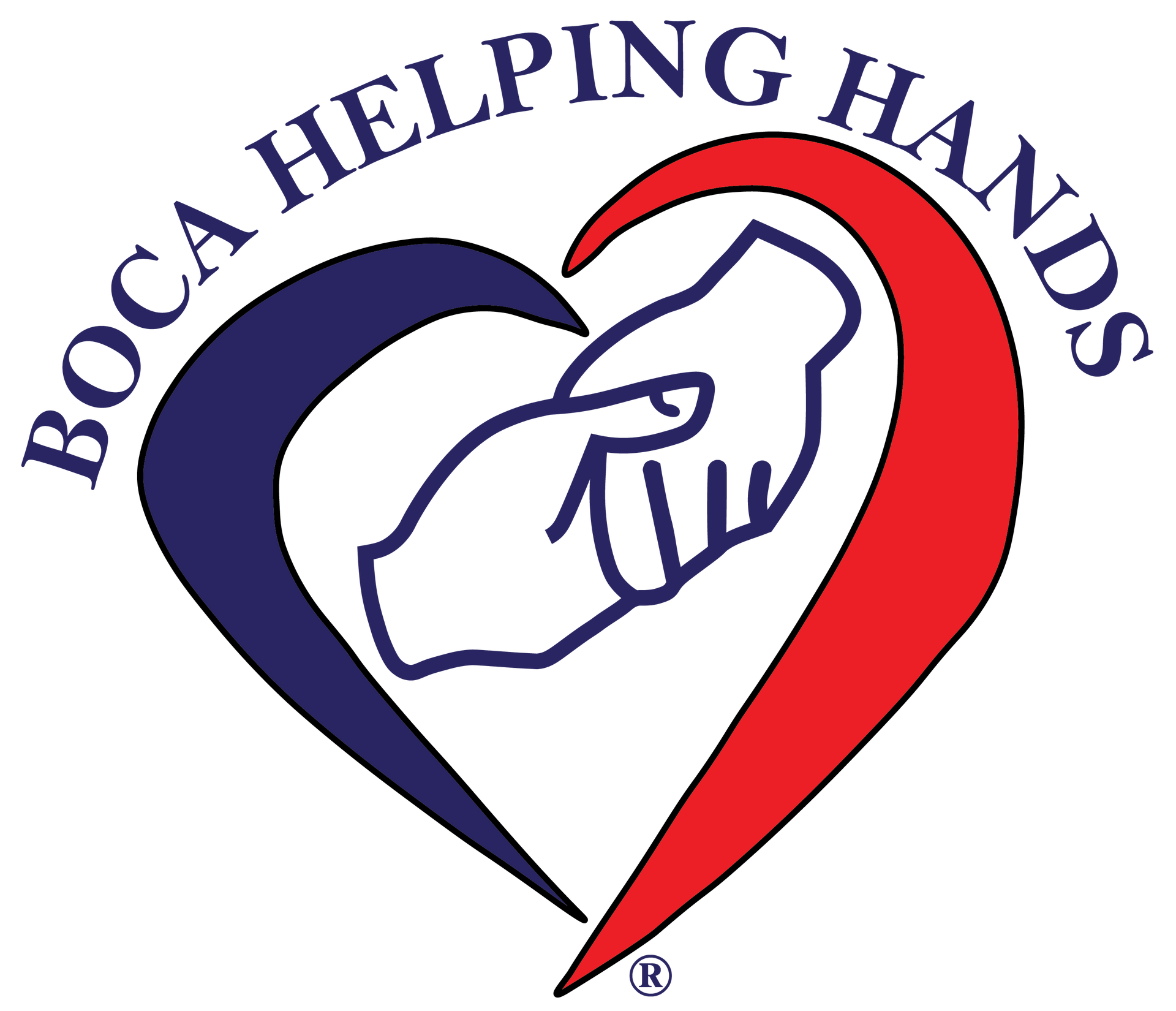'Almost impossible': Food Banks Struggle to Feed Needy as Pandemic Keeps Volunteers Away
Most food banks say they have half the help they did before the coronavirus began to spread in Florida. Yet more and more people are relying on them for meals.
The staff at Palm Beach County food banks are enduring the latest whip of the coronavirus pandemic: more residents to feed, but not enough hands to help.
Denise Negron has felt it firsthand. She and five other women had two days to receive, sort, distribute and pack over 5,000 pounds of food every Wednesday for three weeks at the Farmworker Coordinating Council building in Lake Worth Beach.
That's an effort once only possible with a group of at least 18 volunteers.
Until a team of workers from an area business stepped in, the staff at the nonprofit, which caters to immigrants, simply didn't have enough volunteers to prepare the 160 bags of food it distributes weekly.
Food pantries in the county report that less than half of their volunteers have returned since the pandemic began to spread across Florida in early 2020, even as they experienced their biggest surge of people needing food during that time. This is part of a trend seen in food banks nationwide, with the highly contagious omicron variant scaring volunteers from returning to their shifts.
As a result, the organizations – which depend on the donations of time and supplies of community members – have increased their spending on more permanent staff members as well as food and are getting by with overwhelmed workers struggling to meet the rising demand.
“Without volunteers, this is just too hard,” Negron, the executive director of the FCC, said in Spanish. “Almost impossible.”
Now the staff counts with a rotating cohort of five to seven volunteers from The Breakers hotel in Palm Beach, making distribution day bearable.
Still, Negron says, it's not enough. Every week, the line of families, seniors and adults that snakes outside the small warehouse on Crestwood Boulevard in the north end of Lake Worth Beach keeps getting longer. Waiting under the rain, residents greet each other in Spanish, English and Creole. Every five minutes someone joins the line until it crosses the street into the neighboring Bravo supermarket.
“We have a huge increase of clients asking and coming for food and rental assistance, more than ever before,” said Negron. It's a sign, she assures, of how families around the county are struggling more each month to make ends meet.
Without volunteers, most distribution centers have closed sporadically or reduced their hours to keep offering services. Those that remain open are having to spend more money to continue operating.
“Our expenses are going up, our families are seeing their grocery bills go up, and we're seeing the food costs go up,” said Paco Velez, CEO of Feeding South Florida, the region's largest food bank. “We're bringing in as much as we can for our families”
About one in eight residents in Palm Beach County copes with food insecurity, or a lack of consistent access to food, according to Feeding South Florida.
They either don't have nutritious food in their neighborhoods or don't have enough money to afford it. That number is only expected to increase as rent prices soar, inflation continues to rise and COVID-19 keeps people out of their jobs, food bank leaders say. Velez said the need for food banks is at an all-time high. He’s seen an increase in the frequency of families coming to pick up food multiple times a week.
“A lot more people are coming now,” said Katie Knight, the assistant director of the CROS Ministries food pantries. “People that we hadn't seen in a couple of years are now coming back every week because their rent is soaring and they can't pay for food anymore.”
Two years ago, Boca Helping Hands was able to sustain its food bank with donations only, according to Bill Harper, director of food and warehouse operations. Fast forward two years, and now the organization is spending money out of its own pocket to be able to provide food for those in need.
“Within the last year, our costs of food, not just the price, but how much we're purchasing is probably close to 50 percent more than what we did a year ago,” said Harper. “We can't sustain that.”
Inside the Boca Helping Hands warehouse near Glades Road and Federal Highway, where the nonprofit serves communities throughout Palm Beach, a line of volunteers slab peanut butter and jelly onto white bread while another group scurries around the kitchen to prepare hot meals.
Last week Boca Helping Hands was close to full volunteer staffing, something that has rarely happened since the pandemic started. It was the rare day since the pandemic began when the nonprofit didn't have to leave boxes of donations to pile up so volunteers could concentrate on getting food into the hands of people waiting in the ever-growing line that fills Northwest First Court.
Groceries aren't the only costs local organizations are fronting. “We had to hire and transition staff positions to go into the food pantries and cover some of them because of our volunteer shortages,” said Gibbie Nauman, director of development and community relations for CROS, which has eight pantries across Palm Beach and Martin counties.
In 2019, CROS counted with over 55,000 volunteer hours. By the end of 2021, they only had 22,000, a 60 percent drop. During the same time, the nonprofit saw the number of people it helps double.
Marilyn Munoz, executive director of Joshua’s Cafe in West Palm Beach, said volunteers are the backbone that supports the 45 meals they serve daily and the training programs geared towards people who have been homeless. Their work keeps costs low, ensuring the sustainability of the organization.
It’s a busy Friday morning at the café, too busy. Three volunteers hurry to attend eight packed tables. They serve, converse and pray with all clients who walk in.
“If they weren't here, our staff would not be in the field. We would have to be in here to do what they’re doing,” said Munoz.
Before the pandemic, the nonprofit dedicated to serving hot, nutritious meals every day, for free, had 200 core volunteers to staff the café, their cooking program and outreach team.
This year, they barely have 100 volunteers, who also help at Joshua's Delicatessen, another food outlet their parent nonprofit, The Lord's Place, has opened in Lake Park. "The staff can only do so much, and they've been stretched very thin."
Jason Lorey cooks 450 meals every week for the CROS Caring Kitchen. He distributes them from the van he parks outside the Delray Beach Public Library on Atlantic Avenue, near the tennis center and the south county courthouse. Before the pandemic, Lorey had eight volunteers help him create the menu, buy the groceries and cook. For the last two years, he’s been doing it all on his own.
“It has to get done, so we have to do it,” Lorey says. On a single day he hands out over 50 warm plates of food. Then he sits to eat and talk with the men dealing with homelessness. He already knows them by name. For them, Lorey says, it's all worth it, every single week.
In 2020, the Caring Kitchen gave out hot meals five days a week inside the library. The pandemic forced them to move outside and serve directly from their van. Because of their volunteer shortage, they can only serve two days a week.
“Volunteers are just as important as staff because the staff can only do so much,” said Ruth Mageria, CROS Ministries’ executive director. “And they’ve been stretched very thin.”
For places like The Soup Kitchen in suburban Boynton Beach, the older population is vital to their success. Most of the volunteers are older, but with the concerns that omicron has presented, some aren’t able to commit the same amount of time as they did two years ago.
“We understand that the elderly population is still scared of COVID, but we rely on them for volunteers,” said Dimitry Viarenich, the chief operating officer of The Soup Kitchen, on Boynton Beach Boulevard near Lyons Road.
Another trend worrying staff in all food centers around Palm Beach County is the alarming number of seniors lining up outside their doors. An already vulnerable population, they account for the fastest-growing group of clients in all food pantries, several food bank leaders said.
“They have to choose between food or medication,” said Mageria. Dianelys Sanchez, director of programs for the FCC, says the fixed income of older people can't keep up with the rise in the cost of food and living in Palm Beach County, where rents and home prices have soared.
Some fear what future holds for Palm Beach County's needy.Sanchez is grateful for the few volunteers who help her distribute meals. But she says Palm Beach families need more than bags of food.
Families who came to FCC only for groceries are desperate to receive rent assistance and to register for federal relief like food stamps and Medicaid. Most county food banks say now more than ever, families need their support more to sustain their households.
Rental vouchers have kept residents from losing their homes, for now. “Because the price of everything is so high with inflation and the rents keep doubling, many people, even with the voucher cannot afford to rent here,” said Negron.
The need for rental assistance skyrocketed in 2020 when residents faced evictions. But far from coming down, Negron says, it continued to rise with a spark in January.
For her, seeing more families seeking preemptive services is a worry. She’s afraid of what the rest of the year will bring for her already struggling clients, and how many people she will have to help them.
“Now is going to be worse,” said Negron. “There is so much need in Palm Beach County, of people who have social, economic and cultural barriers and our volunteers are how we help that population break that cycle for the better.”





